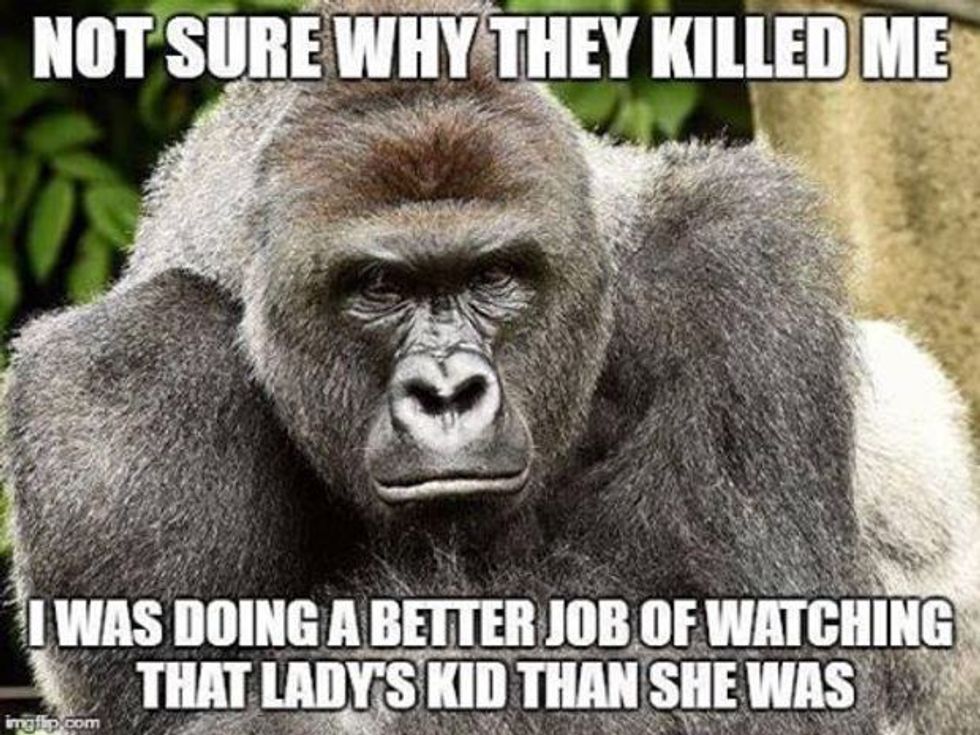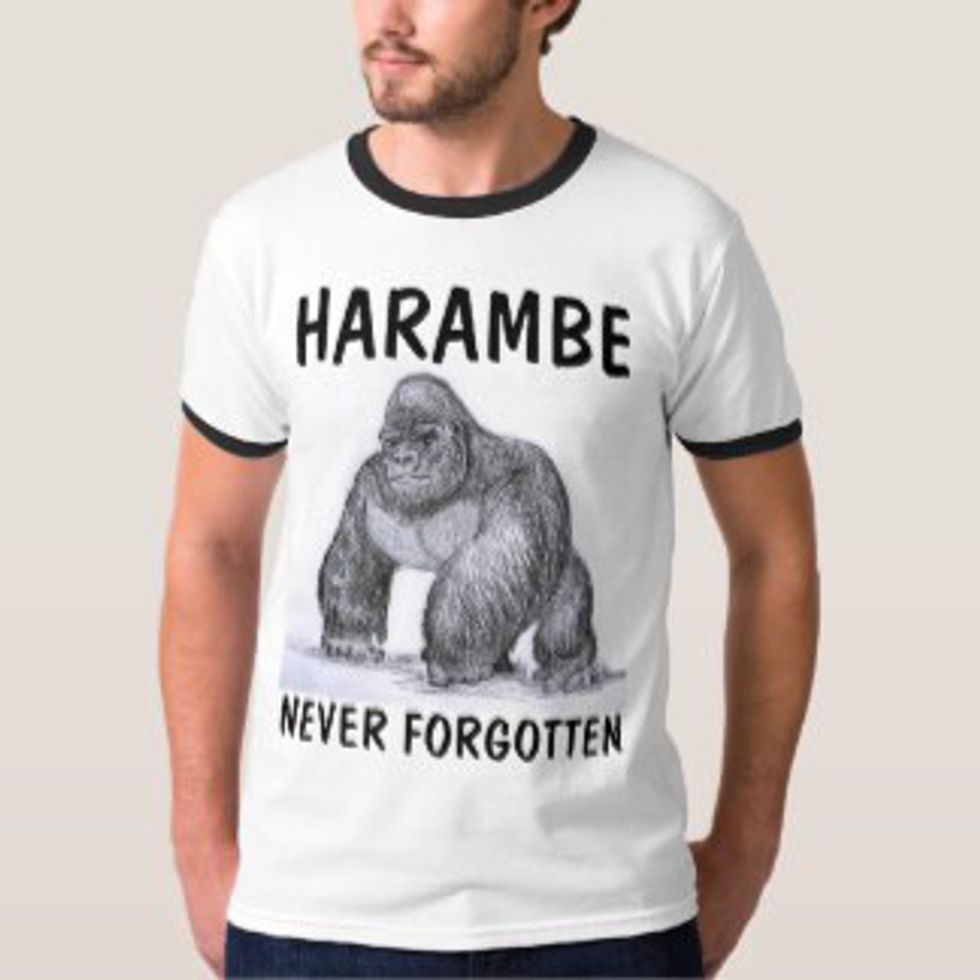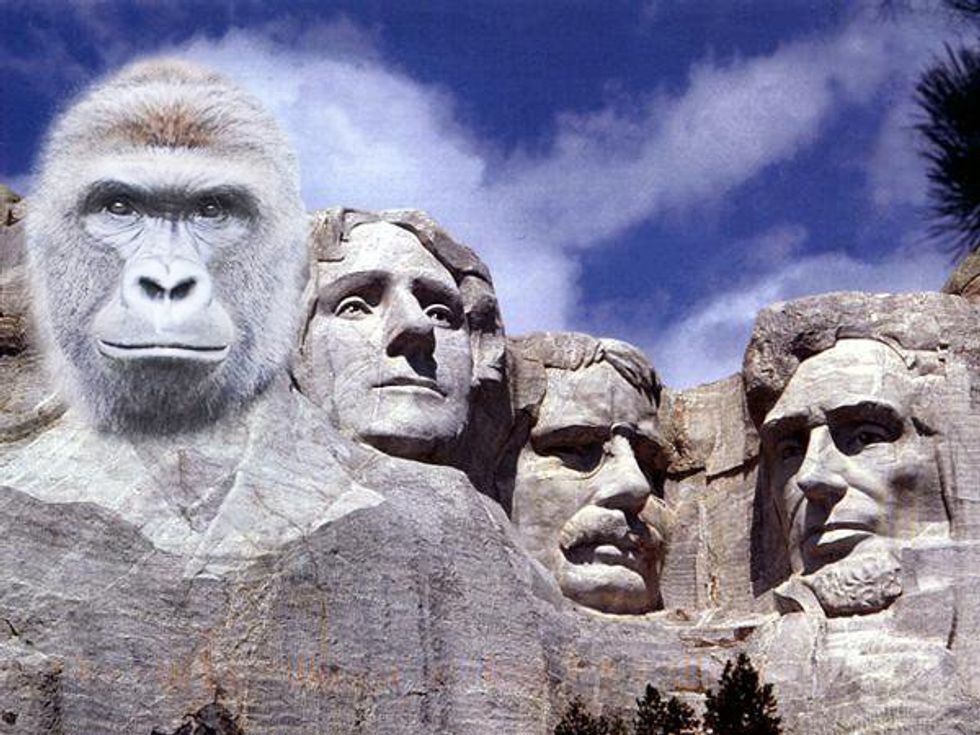In May 2016, a 3-year-old boy got into the enclosure of a 17-year-old gorilla named Harambe at the Cincinnati zoo. After Harambe dragged the boy around the enclosure, he was shot and killed in fear that he would harm the child. Since his death, animal activists and parenting experts have expressed strong opinions regarding his death, but no one has reacted more strongly than the internet.
Harambe memes and merchandise have taken the internet by storm. It's hard to say why people are so fascinated by his death, but it has become a huge movement. Although the memes and merchandise make light of Harambe's death and most people find it amusing, others have taken serious offense to it.
The Cincinnati Zoo's official Twitter account has been deleted after being bombarded with jokes and memes regarding Harambe's death. The director of the zoo stated, "We are not amused by the memes, petitions and signs about Harambe. Our zoo family is still healing, and the constant mention of Harambe makes moving forward more difficult for us. We are honoring Harambe by redoubling our gorilla conservation efforts and encouraging others to join us." Even the zoo director's personal account was hacked and temporarily turned into a Harambe meme account. Some say that the zoo is overreacting while others think that it's an expected consequence of an event that has caught the attention of national news.
UMass Amherst has deemed the use of Harambe's name a microaggression. RAs informed their residents that jokes made about Harambe are seen as an attack on the African-American community at the university and could possibly result in Title IX violations. In response to this, UMASS Lowell, a state university located in Lowell, Massachusetts, held what they called "Harambe Night". The men's soccer team dedicated one of their games to the celebration of Harambe's life and handed out stuffed gorillas to the first 100 spectators.
So have we taken Harambe's death too far? It's hard to say. Of course, it's upsetting for the employees of the zoo and especially for the parents of the child, but who's to say what can and cannot be posted to the internet in response to national news? No one has claimed the rights to Harambe's name so legally, companies can capitalize off this tragedy and anyone can use it.
The Cincinnati zoo made an impulsive decision that day and opened a huge can of worms. Why was the child's life valued over Harambe's when the child was the one who trespassed in the first place? How did the child get into the enclosure? Is it ethical to keep such strong, intelligent animals in a zoo? Should the parents of the child be charged? Maybe instead of photoshopping Harambe's face onto Mount Rushmore and sending hateful messages to the employees of the zoo, we could answer more pressing questions.
























